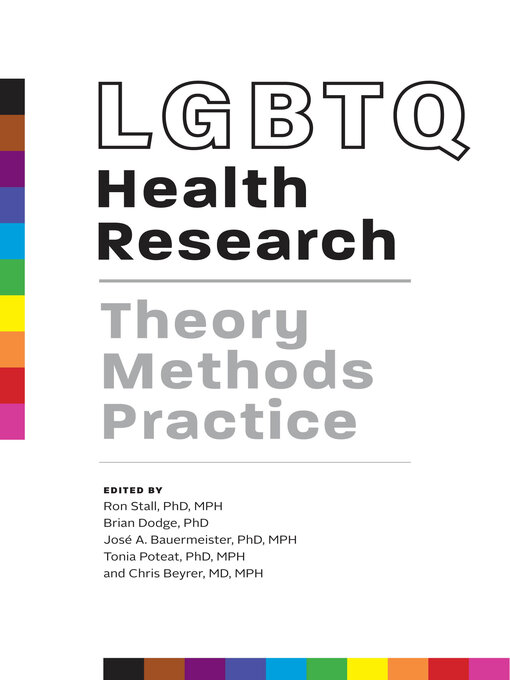The first book focused entirely on the growing field of LGBTQ health research, this volume provides the necessary public health tools to teach about and study LGBTQ populations effectively.
Over the last 30 years, the health needs of lesbian, gay, bisexual, transgender, and queer Americans have become increasingly recognized, in particular for the ways in which they are distinct from those typically assessed and addressed in society. Universities and researchers are paying greater attention to LGBTQ public health issues and how they might adapt existing methods to research marginalized communities, but—until now—there has been no authoritative resource to guide their education or practice. Developed for graduate students in public health and health sciences—but perfect for anyone interested in this topic—this book will fill that gap and provide the necessary public health tools to teach about and study LGBTQ populations effectively.
Divided into three sections and edited by top scholars, LGBTQ Health Research explains research methods important to descriptive epidemiology that are needed to document health disparities among LGBTQ populations. The book also examines research methods that help explain the driving forces of these disparities. Focusing on real-world experience in developing and testing interventions to mitigate health disparities in LGBTQ populations, it also breaks down issues that challenge the direct application of standard research methods with these communities, including those related to sampling, measurement, choice of theoretical variables to explain the distribution of health and illness, cultural competence in intervention design, and community participation.
Promoting the creation and diffusion of effective interventions, the book takes a holistic approach to address longstanding research gaps regarding important marginalized communities. It also documents profound health disparities in many LBGTQ populations across a wide range of health conditions and explains why future development of the field must be based on inclusive science and rigorous research methods. LGBTQ Health Research is an essential textbook for any courses that deal with the intersection of marginalization, health, sexuality, and gender.
Contributors: José A. Bauermeister, Chris Beyrer, Kerith Conron, Brian Dodge, Rita Dwan, Stephen L. Forssell, Peter Gamache, Gary W. Harper, Mark L. Hatzenbuehler, Colleen Hoff, Carl Latkin, Ilan H. Meyer, Robin Lin Miller, Angulique Y. Outlaw, Christopher Owens, Tonia Poteat, Erin Riley, Joshua Rosenberger, Ayden I. Scheim, Shauna Stahlman, Randall Sell, Ron Stall, Rob Stephenson, Rachel Strecher, Ryan C. Tingler, Karin E. Tobin, Ronald O. Valdiserri, and Richard J. Wolitski

